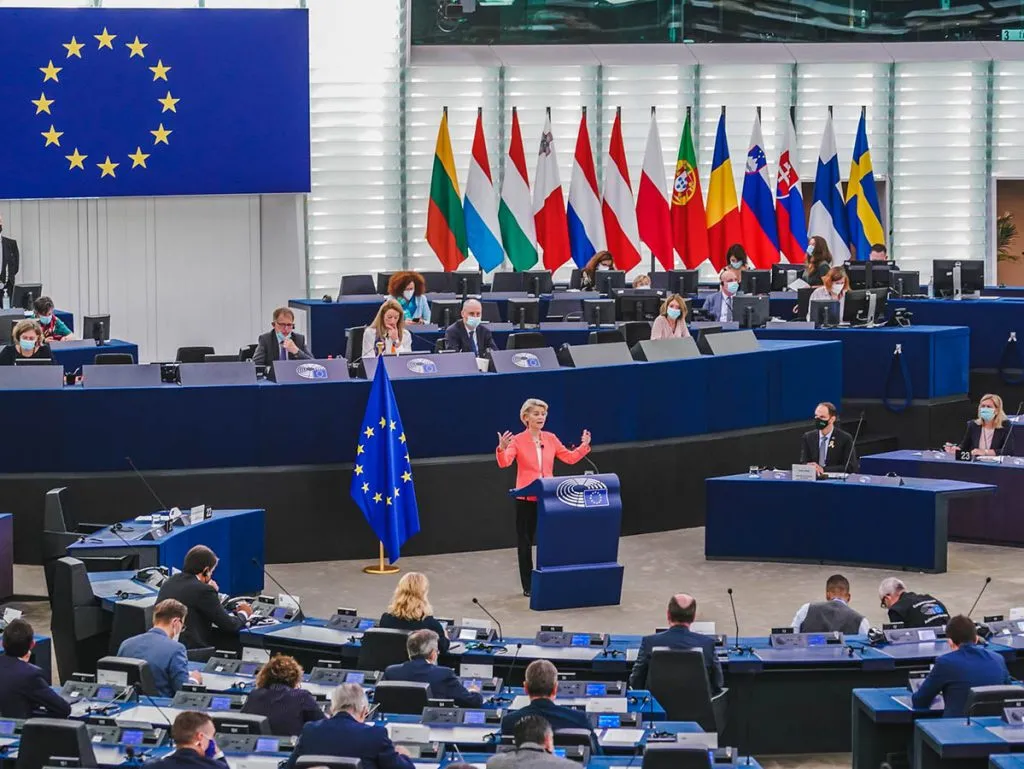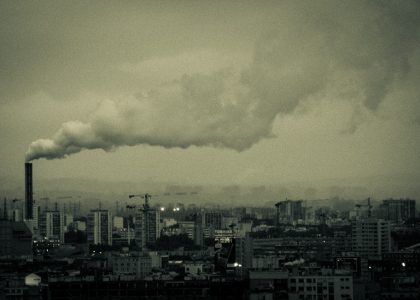The departure of the UK from the EU was once celebrated as an opportunity for reaping the ‘great progressive prize of a green Brexit’. Increasing divergences between UK and EU regulations on key aspects, from the price of carbon to air and water pollution regulations, cast doubts on these ambitions. But while the country’s commitments falter, the EU is also struggling with its own challenges.
Green Brexit or Singapore-on-Thames?
Back in 2018, Michael Gove, then Environment Secretary in the government of Boris Johnson, celebrated Brexit as an opportunity for reaping the ‘great progressive prize of a green Brexit’.

Brexit, then, was presented as a chance for the UK to shelve environmentally damaging schemes, such as the EU common agricultural and fisheries policies, in favour of greener more effective regulations. In Gove’s vision, Brexit would create a ‘rivalrous emulation’ between the UK and the EU on environmental policies.
The remain camp and many environmental organisations, on the other hand, feared the UK government might be tempted to follow the so-called ‘Singapore-on-Thames’ economic model, based on large-scale deregulation and the shelving of the EU’s environmental regulations to gain a competitive edge. But in fact, the Trade and Cooperation Agreement – the post-Brexit trade deal between the UK and the EU – aims to avoid just that. It includes clauses for ‘non-regression’ on environmental and other standards and a ‘rebalancing mechanism’ in case diverging environmental ambitions unduly distort trade.
A slow drift across the channel
Since the UK has left the EU, neither Gove’s vision of a ‘Green Brexit’, nor the feared scenario of a bonfire of environmental legislation appear to have materialised. The UK has not shelved most environmental protections adopted as part of its EU membership. In fact, it has instead retained the vast majority through the EU Withdrawal Act 2018, a large-scale copy-pasting exercise aimed at ensuring a degree of continuity post Brexit. And despite gestures in that direction, first by Jacob Rees-Mogg and then during the short-lived Truss government, no large-scale environmental deregulation has happened.
However, what appears to have been taking place is a slow drift between the two sides, as the EU upgrades its green ambitions and legislative framework, while the UK wavers. This is hardly the result of a deliberate strategy, as appetite for active divergence has all but faded across party lines. Instead, it has mostly taken the form of quiet divergence, where the government unravels selected EU derived regulations, or passive divergence when it fails to align on new EU targets and standards.
EU rising ambitions
The trend towards passive divergence has become particularly significant in the context of the adoption of the EU ‘Green Deal’, launched by Commission President Ursula von der Leyen in late 2019.

The Green Deal commits the bloc to reduce its net Green House Gas (GHG) emissions by 55% by 2030 and achieve net zero emissions by the middle of the century. It also aims to tackle other environmental issues such as waste and recycling, chemical pollution, biodiversity, and deforestation. To make good on these wide-ranging commitments, the EU is finalising its so-called ‘Fit for 55’ legislative package, a raft of new legislation covering everything from a revision of its carbon market to renewable energy promotion, energy efficiency targets, and emissions in transport (including car, shipping and aviation).
Some of the measures adopted as part of the EU Green Deal have direct consequences for the UK. The EU is strengthening its carbon market faster than the UK – whose post-Brexit carbon market was originally designed as a replica of its larger continental counterpart. This has resulted in diverging carbon prices on the continent and raised concerns about a possible impact on trade across the Channel.
‘Cutting the green crap’?
While the EU is raising its ambitions, the UK government of Rishi Sunak, on the other hand, has proved cautious about environmental protection, in a context of rising inflation, cost of living pressures and faltering economic growth.
Most headline targets – including achieving net zero greenhouse gas emissions by 2050 – have been maintained; however, insufficient policies raise questions about the government’s ability to achieve them. Some major decisions have also cast doubts on the Sunak government’s commitment to environmental and climate leadership. Most strikingly, it has approved the development of new oil field for production in the North Sea, presented as vital for UK energy security in response to the war in Ukraine.

This summer, after unexpectedly hanging on to the Uxbridge seat in a by-election in part due to Tory campaigning against the Ultra Low Emission Zone, the government has gestured at cutting back green policies that impose direct costs on consumers and businesses.
This appears to be Sunak’s version of David Cameron’s disastrous 2013 decision to ‘cut the green crap’, with the aim of creating a dividing line with Labour in the run-up to the general election. Since then, the government has pushed back the end of petrol and diesel car sales from 2030 to 2035, relaxed targets on the phasing out of fossil fuel boilers and abandoned imposing tighter energy efficiency rules for landlords.
More quietly, the UK government has diverged from a number of EU environmental laws. For instance, it has failed to upgrade its regulations on chemicals and pesticides to keep them on a par with the EU. It has also removed or watered down EU-derived rules to prevent wastewaters being released in environmentally protected areas and to control air pollution.
Backlash against environmental policies
While growing environmental divergence between the UK and the EU does represent a serious concern, driven in large part by the UK government’s faltering ambitions, in some EU member states discontent is also mounting, fuelled by perceptions of overregulation and the costs of environmental commitments. In spite of this backlash the EU has, so far, not reneged on its commitments, but with looming EU elections in 2024, such discontent could put the implementation of the Green Deal and the bloc’s future ambitions at risk too.
In the context of a cost-of-living crisis and a backlash against green policies, one can only hope that environmental divergence between the UK and the EU does not in fact turn into a negative ‘rivalrous emulation’, but rather that it inspires renewed environmental ambitions on both sides.
This piece was first published on the East Anglian Byline Times
Image credit: Elionas via Wikimedia Commons (CC0)





